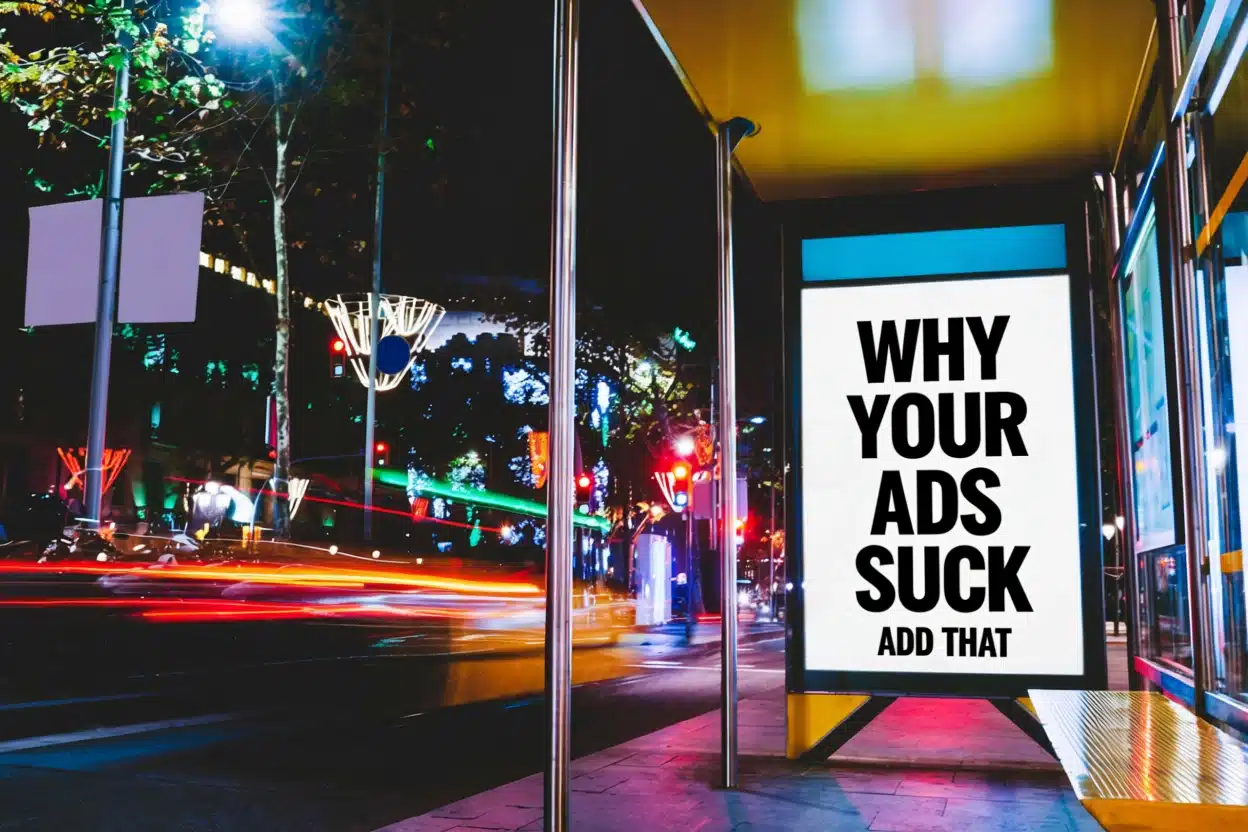Starting a business in Ireland can be exciting and challenging, especially in the digital age where online presence is crucial. This guide aims to provide Irish startups with essential digital marketing strategies for 2024. By understanding the digital landscape, building a strong online presence, and using effective marketing tools, startups can thrive in a competitive market. Whether you’re new to digital marketing or looking to enhance your existing strategies, this guide will help you navigate the essentials of digital marketing for your startup.
Key Takeaways
- Understanding current trends in digital marketing is key for startup growth.
- A user-friendly website is essential for attracting and retaining customers.
- Social media platforms can significantly boost your business visibility.
- SEO strategies tailored for local markets can enhance your online presence.
- Monitoring your marketing efforts with analytics is crucial for ongoing success.
Understanding the Digital Marketing Landscape in Ireland
Key Trends Shaping 2024
Alright, so let’s dive into what’s buzzing in 2024. Digital marketing in Ireland is all about keeping up with trends. AI is taking over, and not just in a sci-fi way. We’re talking chatbots, smarter ad targeting, and even content creation. Video content is still king, but short clips are where it’s at, thanks to TikTok and Instagram Reels. Oh, and don’t forget about sustainability. Consumers want brands to be eco-friendly, and that’s not going away.
The Role of Digital Marketing in Startup Growth
For startups, digital marketing is like the secret sauce. It’s what helps them get noticed without spending a fortune. Imagine trying to shout out your new business in a crowded room; that’s the internet today. With the right digital marketing, you can be the one everyone’s listening to. It helps startups reach more people, build their brand, and yes, even compete with the big guys.
Challenges Faced by Irish Startups
Starting up in Ireland? It’s not all rainbows and pots of gold. There are some real hurdles. First off, there’s the budget. Not every startup has deep pockets, so spending wisely is crucial. Then there’s the competition. The digital space is crowded, and standing out is tough. Lastly, keeping up with tech changes can feel like a full-time job. But hey, every challenge is just an opportunity in disguise, right?
Building a Strong Online Presence
Importance of a User-Friendly Website
Alright, so first things first, your website. It’s like your digital shopfront. Imagine walking into a store that’s cluttered and hard to navigate—no one wants that. Same goes for a website. Make it simple, clean, and easy to navigate. Your audience should find what they need without digging around too much. Think of it like this: the fewer clicks they need, the better.
Optimising for Mobile Users
Let’s be real, everyone’s glued to their phones these days. If your site doesn’t look good on mobile, you’re missing out big time. It’s gotta be responsive, meaning it should adjust smoothly to different screen sizes. Test it out on a bunch of devices to make sure it looks and works great everywhere.
Creating Engaging Content
Content is king, right? But not just any content. It needs to be engaging and relevant. Here are a few ideas:
- Tell stories: People love a good story. Share your brand’s journey or customer success stories.
- Use visuals: Images, infographics, and videos can make your content pop.
- Be consistent: Regular updates keep your audience coming back for more.
Remember, a strong online presence isn’t just about looking good; it’s about connecting with your audience and making it easy for them to engage with you. Enhance your Irish business through effective online reputation management strategies, boosting digital presence for long-term success.
Leveraging Social Media for Business Growth
Choosing the Right Platforms
Picking the right social media platforms is like choosing the right shoes for a hike. You don’t wear flip-flops to climb a mountain, right? Same with social media. You gotta know where your audience hangs out. Facebook’s great for reaching a broad audience, while Instagram’s perfect for those snazzy visuals. If you’re all about B2B, LinkedIn’s your buddy. Do a bit of research, see where your competitors are, and start there.
Creating a Social Media Strategy
Alright, so you’ve picked your platforms. Now what? Time to whip up a strategy. First, figure out your goals. Are you looking to boost brand awareness, drive traffic, or maybe just engage with your audience? Once you’ve got that down, plan your content. Mix it up with posts, stories, and maybe even some live videos. Keep an eye on your analytics to see what’s working and what ain’t. Adjust as you go.
Engaging with Your Audience
Engagement’s the name of the game. It’s not just about posting and ghosting. You gotta interact. Respond to comments, like and share other people’s stuff, and maybe even run a few polls or Q&As. People love feeling like they’re part of the conversation. And hey, if someone takes the time to comment or message, make sure you hit them back. It’s like having a chat with a mate, keeps things friendly and real.
"Social media isn’t just a platform; it’s a community. Treat it like one and watch your business grow."
SEO Strategies for Irish Startups
Conducting Keyword Research
Alright, so first things first, you gotta know what words people are using to find stuff like yours. This is called keyword research. Here’s how you do it:
- Think about what your business is about and jot down some words.
- Use tools like Google Keyword Planner to see which words are popular and not too competitive.
- Check out what your competitors are using.
- Don’t forget to throw in some local flavour, like "Dublin" or "Cork" to catch the nearby crowd.
On-Page and Off-Page SEO Techniques
Now, onto the nitty-gritty of SEO. On-page SEO is all about making your website the best it can be. Use those keywords in your text, titles, and descriptions. Make sure it’s easy to navigate and looks good on mobile. Then there’s off-page SEO. This is about getting other sites to link to yours. It shows search engines that your site is trustworthy.
Local SEO for Irish Markets
For Irish startups, local SEO is where it’s at. You want to be the go-to when someone in Ireland searches for your product or service. Make sure your business is listed on Google My Business. Use local keywords and get reviews from Irish customers. This helps you stand out in local searches.
If you’re running a startup in Dublin, you’ll want to focus on local SEO strategies to connect with customers in your area. It’s about making sure people in your neighbourhood can find you easily when they search online.
For more insights on improving local search rankings and connecting with local customers, check out Dublin startups and small businesses.
Utilising Paid Advertising Effectively
Understanding Google Ads
So, Google Ads. It’s like the big cheese in online advertising. If you’re not using it, you might be missing out. It’s all about getting your business in front of people right when they’re looking for what you offer. Setting up a campaign is pretty straightforward, but keep an eye on those keywords. You want the ones that bring in the right crowd without costing an arm and a leg.
Social Media Advertising Tips
Jumping onto social media ads? Smart move. Here’s a quick list to get you going:
- Know your audience. Tailor your ads to fit their interests.
- Use eye-catching visuals. People scroll fast, make ’em stop.
- Test different ad types. See what clicks with your crowd.
Budgeting for Paid Campaigns
Money talks, right? So, you’ve got to keep your budget in check. Start small, see what works, and then scale up. Make sure you’re getting a good return on your investment. And don’t forget to check out PPC strategies that can boost your ROI. It’s all about getting the most bang for your buck.
Paid advertising can really give your startup a boost. But you’ve got to play it smart. Keep testing, keep tweaking, and you’ll find what works best for your business.
Measuring and Analysing Marketing Success
Key Performance Indicators to Track
Alright, so you’ve got your marketing plan in motion, but how do you know if it’s actually working? Key Performance Indicators (KPIs) are your best mates here. These are like the scorecards for your marketing efforts. Think about tracking things like website traffic, conversion rates, and customer acquisition costs.
- Website Traffic: Keep an eye on how many people are visiting your site. More visitors can mean more potential customers.
- Conversion Rates: This tells you how many of those visitors are actually buying something or signing up.
- Customer Acquisition Cost (CAC): Find out how much you’re spending to get a new customer. The lower, the better!
Using Analytics Tools
Now, you can’t just guess these numbers. You’ve got to use some tools. Google Analytics is a big one, and it’s free! It can show you where your visitors are coming from and what they’re doing on your site. There are others like SEMrush and Moz that can help with SEO stuff too.
Adjusting Strategies Based on Data
So, you’ve got all this data. What do you do with it? Well, you need to adjust your strategies. If something’s not working, change it up. Maybe your target audience isn’t who you thought it was. Or maybe your ads need a tweak. It’s all about being flexible and learning from what’s in front of you.
Remember, marketing is a bit of trial and error. Keep testing, keep learning, and don’t be afraid to make changes. That’s how you grow.
Navigating Legal and Ethical Considerations
Understanding GDPR Compliance
Alright, let’s talk GDPR. It’s a big deal here in Ireland. You gotta make sure you’re handling people’s data right. Mess it up, and you could face some hefty fines. So, keep track of what data you collect, why you collect it, and how you store it. A few things to keep in mind:
- Be clear about why you’re collecting data.
- Only keep data as long as you need it.
- Make sure it’s stored securely.
Ethical Marketing Practises
Ethical marketing isn’t just a buzzword. It’s about honesty and transparency. You want your customers to trust you, right? Here’s how you can keep it real:
- Be honest in your advertising. No fake promises.
- Respect customer privacy. Don’t bombard them with spam.
- Be transparent about your products or services.
"Being upfront with your customers builds trust and loyalty. It’s not just good ethics; it’s good business."
Protecting Consumer Data
Data breaches are a nightmare. Protecting consumer data should be a top priority. Here’s what you can do:
- Use strong passwords and encryption.
- Limit access to sensitive data to only those who need it.
- Regularly update your security measures.
And remember, following regulations isn’t just about avoiding fines; it’s about building trust with your customers. Make sure your startup is playing by the rules, and you’ll be in a good spot.
When dealing with legal and ethical issues, it’s crucial to stay informed and make wise choices. Understanding these aspects can help you navigate challenges effectively. For more insights and guidance, visit our website today!
Final Thoughts
In conclusion, mastering digital marketing is vital for Irish startups looking to make their mark in 2024. By focusing on key areas such as SEO, social media, and understanding consumer behaviour, startups can effectively reach their target audience. It’s important to remember that digital marketing is not a one-time task but an ongoing effort. Regularly updating strategies and staying informed about new trends will help businesses stay competitive. With dedication and the right tools, Irish startups can thrive in the digital landscape and achieve long-term success.
Frequently Asked Questions
What is digital marketing and why is it important for startups?
Digital marketing is promoting products or services online. It’s important for startups because it helps them reach more customers quickly and cost-effectively.
How can I create a user-friendly website for my startup?
To make a user-friendly website, ensure it loads fast, is easy to navigate, and works well on mobile devices.
What social media platforms should I use for my business?
Choose platforms where your target audience spends time. Common options include Facebook, Instagram, and LinkedIn.
What is SEO and how can it help my startup?
SEO stands for Search Engine Optimisation. It helps your website rank higher on search engines, making it easier for customers to find you.
How can I measure the success of my digital marketing efforts?
You can measure success by tracking website traffic, social media engagement, and conversion rates using tools like Google Analytics.
What legal things should I consider when marketing online?
You should understand GDPR rules to protect customer data and ensure your marketing practises are ethical.

















